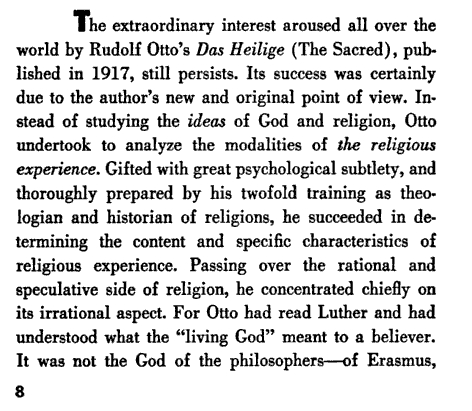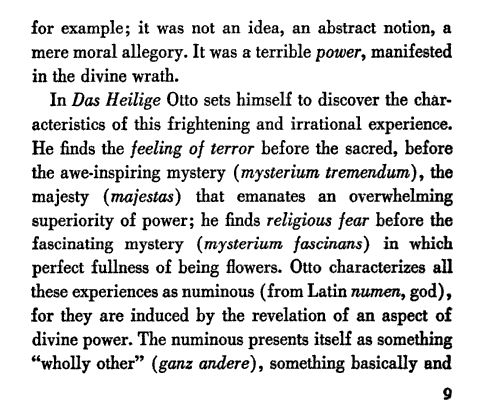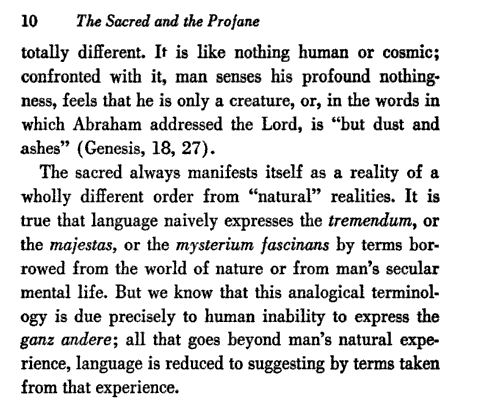
 Back
Back
One of the best-known definitions of the holy comes from the 19th-century German theologian, Rudolf Otto. I have at hand only the brief but satisfactory presentation of his definition by Mircea Eliade in The Sacred and the Profane, 1957, tr fm the French by Willard R. Trask, 1959. As my pages are so completely marked up, I’ll take advantage of the Google Books photo copies, which include the introduction that starts off with Otto.
Link to the Google source.



Another way of supposing that it is not the beliefs that make religions most significantly similar, or different. I don’t know how derivative this is from William James.
Meanwhile, it is the beliefs that people go to war over.
This is Eliade’s claim. Does he mean to refer to all or only some religious experience? It looks to me like he thinks this definition captures the essence of some deepest or core religious experience. My view would be that while this is real for many people, there is another, different kind that is also very widespread. See later.


I’ve always thought this term especially apt. It is allied to the term “weird” used in its older senses.

My own sense of what I would call the holy or the sacred, found in my meditation practice and personal extrovertive mystical experience (see later for detail) is more of a ganz andere that I feel at the same time quite like, quite a part of. It is an experience for me (and many in the tradition of the Perennial Philosophy) more of loving than fearing. The strangeness and grandeur of these moments are quite extraordinary of course, ineffable but profoundly significant to the mystic. But one does not at all feel entirely alien to this that one is suddenly at one with. “Atonement” is a good word for the experience.
The Rudolph Otto experience of the holy does ring authentic to me, and I suspect that those experiences are at bottom the same as those of the Perennial Philosophy people, but I am not clear on how to account for the experiential differences. Perhaps it would have to do with the expectations and personal backgrounds of the various individual experiencers.